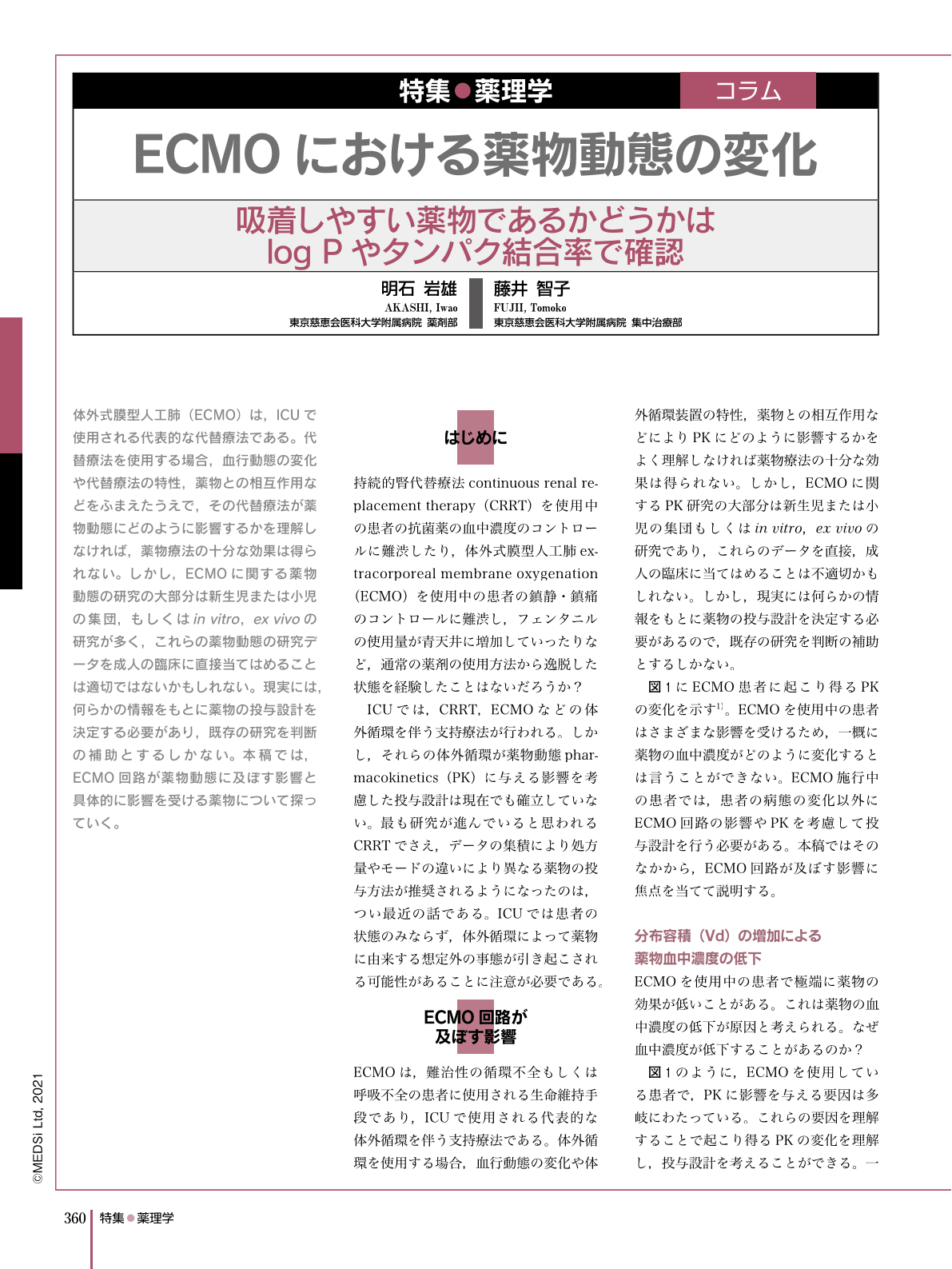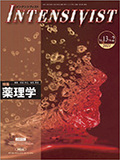Japanese
English
- 有料閲覧
- Abstract 文献概要
- 1ページ目 Look Inside
- 参考文献 Reference
体外式膜型人工肺(ECMO)は,ICUで使用される代表的な代替療法である。代替療法を使用する場合,血行動態の変化や代替療法の特性,薬物との相互作用などをふまえたうえで,その代替療法が薬物動態にどのように影響するかを理解しなければ,薬物療法の十分な効果は得られない。しかし,ECMOに関する薬物動態の研究の大部分は新生児または小児の集団,もしくはin vitro,ex vivoの研究が多く,これらの薬物動態の研究データを成人の臨床に直接当てはめることは適切ではないかもしれない。現実には,何らかの情報をもとに薬物の投与設計を決定する必要があり,既存の研究を判断の補助とするしかない。本稿では,ECMO回路が薬物動態に及ぼす影響と具体的に影響を受ける薬物について探っていく。
Extracorporeal membrane oxygenation (ECMO) is a typical alternative therapy used in the intensive care unit. The use of alternative therapies requires an understanding of how pharmacokinetics is affected by circulatory changes, characteristics of the alternative therapy, and drug-drug interactions. However, most of the pharmacokinetic studies on ECMO are conducted in neonatal or pediatric populations or in vitro or ex vivo, and it may not be appropriate to directly apply data from these pharmacokinetic studies to clinical practice. In patients undergoing ECMO, we need to consider the effects of the ECMO circuit in addition to changes in the patient's condition when deciding drug dosages. In this article, we discuss the effects of ECMO circuits on pharmacokinetics and the specific drugs that are affected.

Copyright © 2021, MEDICAL SCIENCES INTERNATIONAL, LTD. All rights reserved.


